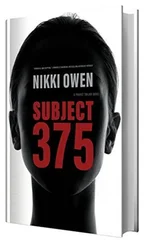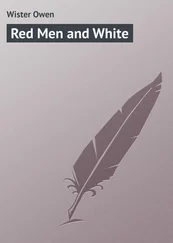Owen Wister - The Virginian
Здесь есть возможность читать онлайн «Owen Wister - The Virginian» весь текст электронной книги совершенно бесплатно (целиком полную версию без сокращений). В некоторых случаях можно слушать аудио, скачать через торрент в формате fb2 и присутствует краткое содержание. Жанр: Вестерн, на английском языке. Описание произведения, (предисловие) а так же отзывы посетителей доступны на портале библиотеки ЛибКат.
- Название:The Virginian
- Автор:
- Жанр:
- Год:неизвестен
- ISBN:нет данных
- Рейтинг книги:4 / 5. Голосов: 1
-
Избранное:Добавить в избранное
- Отзывы:
-
Ваша оценка:
- 80
- 1
- 2
- 3
- 4
- 5
The Virginian: краткое содержание, описание и аннотация
Предлагаем к чтению аннотацию, описание, краткое содержание или предисловие (зависит от того, что написал сам автор книги «The Virginian»). Если вы не нашли необходимую информацию о книге — напишите в комментариях, мы постараемся отыскать её.
The Virginian — читать онлайн бесплатно полную книгу (весь текст) целиком
Ниже представлен текст книги, разбитый по страницам. Система сохранения места последней прочитанной страницы, позволяет с удобством читать онлайн бесплатно книгу «The Virginian», без необходимости каждый раз заново искать на чём Вы остановились. Поставьте закладку, и сможете в любой момент перейти на страницу, на которой закончили чтение.
Интервал:
Закладка:
By 1891, Wister determined to do something with the copious journals he had kept during his trips to the West. He recalled in his semi-autobiographical Roosevelt: The Story of a Friendship that in the autumn of that year that he and his friend Walter Furness were discussing the West when one of them asked “Why wasn’t some Kipling saving the sage-brush for American literature, before the sage-brush and all that it signified went the way of everything?” After lighting a cigar, Wister recalls telling his companion, “Walter, I’m going to try it myself…I’m going to start this minute.” He even purports to have written most of his first published story, “Hank’s Woman,” by midnight. The accuracy of particular timeline is questioned, but Wister’s story was published in January of the next year in Harper’s Weekly . He also sent a graphic story, “Balaam and Pedro,” to Harper’s Monthly , where it was illustrated by the renowned artist Frederick Remington.
During the rest of the 1890s, Wister continued writing short stories on western themes. In 1895, he published his first volume of short stories, Red Men and White . In 1897, his first “novel” appeared, Lin McLain . Though Wister liked to call it a novel, Lin McLain is largely a stitched-together collection of stories with a common character. He published The Jimmyjohn Boss and Other Stories in 1900. The featured story of the volume, “Padre Ignacio,” was so much a departure from Wister’s usual concentration on action and on landscape that Remington found it impossible to illustrate for Harper’s . It is the moving tale of a priest exiled from Europe to Mexican California with only a yearly packet of letters and musical scores from Paris to maintain his connection to the world. He becomes tempted by the tales of the outside world that an adventurous creole tells him. He is so tempted that his idyllic existence is temporarily marred. He eventually regains his satisfaction with his mission on the Camino Real, and he dies with a “silent and thankful heart.”
By the end of 1897, Wister resolved to ask his distant cousin Mary Channing Wister to marry him, and he proposed on New Year’s Day in 1898. They married on April 21, 1898, at the bride’s home, and they honeymooned in Charleston, South Carolina, and the state of Washington. The former location provided inspiration for a future novel. The couple had six children during the course of their marriage.
Wister began to work on the novel that elevated him from the ranks of accomplished short story writers to the level of celebrity. Wister decided to create a novel about a character who had appeared fleetingly in some of the Lin McLain stories, a character known only as “the Virginian.” Darwin Payne describes this unnamed character as “a composite figure representing Wister’s dream of the kind of superior individual the American West should have produced. The Virginian was ruggedly masculine, honest, and tender. He was not perfect; he recognized in himself a need for culture and learning.” The tale of this superior individual is told in 1902’s The Virginian: A Horseman of the Plains through the eyes of a “tenderfoot” Easterner who bears more than a passing resemblance to Wister himself. An episodic novel, though much more unified than Wister’s earlier Lin McLain had been, The Virginian depicts the changing climate of the West, the growing relationship between the Easterner and the Virginian, and the beauty of the Western landscape. It creates many standard features of the Western genre: fast-draw contests, noble code of conduct, the Eastern school marm, and many others. It is also the source of the great Western line, “When you call me that, smile,” which was line in response to an insult levied at the Virginian. Loren Estleman writes, “the importance of Owen Wister to the literature of the American West cannot be overstated….With The Virginian , Wister fashioned both a native language and a national voice.”
In his initial review of The Virginian, a New York Times critic wrote: “Owen Wister has come pretty near to writing the American novel.” The unnamed critic went on to praise the novel in detail: “It rings true, and we believe it to be a faithful study. Certainly the book is absorbingly interesting. It contains humor, pathos, poetic description, introspective thought, sentiment, and even tragedy.” Henry Irving Brock later wrote in the Times, “In the main, Mr. Wister writes well and true…The Virginian is a character that will stick in the mind of even a confirmed novel reader for a long time, and leave its mark there.” However, he did quibble over Wister’s depiction of dialect and took him to task for the last chapter, which portrayed the couple’s honeymoon. Brock said, “Nobody has any right to know anything about the details of honeymoons — even where basic savages are concerned.”
In 1904, the stage version of The Virginian appeared in New York after a very successful try-out in New Haven, Connecticut. The Times critic wrote that while “ The Virginian is well worth seeing, both for its artistic and its popular interest,” it missed a chance to become a “great American drama” by remaining a “dramatized novel.” Despite this review and other lukewarm reviews, The Virginian enjoyed a four-month run on Broadway and toured successfully throughout the country for a decade. The legendary film director Cecil B. DeMille began his career by producing the first film version of The Virginian in 1914. Film versions also appeared in 1923, 1929 (one of the first “talkies,” starring Gary Cooper as the Virginian), and 1946. The novel also served as the basis for the NBC television series, The Virginian , which ran from September 19, 1962, to March 24, 1971.
After the amazing success of The Virginian, Wister left the West as the primary location for his fiction and turned south. In 1906, he published Lady Baltimore . It concerned the fate of the genteel “Old South” in Charleston and the threat posed by carpetbaggers. The novel generally was well-reviewed and sold well. Wister’s great friend, President Roosevelt, however, loathed the book for putting too favorable a light on the Southerners and too dark a shadow on the Northerners. Darwin Payne writes that Roosevelt “reacted so vehemently against Lady Baltimore that is it surprising the friendship survived.”
Following the success of Lady Baltimore , Wister lived largely as a celebrity. He gave many speeches at public events and similar activities. In 1906, Wister fell ill with another bout of something akin to neurasthenia; he was incapacitated for a year. After his illness, he gravitated into politics. He not only vigorously supported his good friend Theodore Roosevelt’s third party candidacy for the presidency in 1912, but he also ran as a reform candidate for the Philadelphia City Council. He lost and turned his hand to writing a third novel, one that would do for Philadelphia what The Virginian had done for the West and Lady Baltimore had done for the South. He had written some 48,000 words of Romney , when his beloved wife Mary died in 1913. This devastated Wister and ended any further significant work on the novel. He wrote in his journal in January 1914, he felt his life had “begun the final volume — And the thought is not unwelcome.”
Wister did not turn back to fiction until 1928. During the World War I period, he devoted himself to writing a set of three “political and moral polemics,” as James Butler terms them, on getting America involved in the war. These were 1915’s The Pentecost of Calamity , 1920’s A Straight Deal , and 1922’s Neighbors Henceforth . He was aggressively anti-German before, during, and after the war. When President Wilson did not take a course against the Germans in the early years of the war, Wister used his celebrity status to attack him. In early 1916, he published a sonnet to Wilson in which he says,“Dead Washington would wake and blast your soul.”
Читать дальшеИнтервал:
Закладка:
Похожие книги на «The Virginian»
Представляем Вашему вниманию похожие книги на «The Virginian» списком для выбора. Мы отобрали схожую по названию и смыслу литературу в надежде предоставить читателям больше вариантов отыскать новые, интересные, ещё непрочитанные произведения.
Обсуждение, отзывы о книге «The Virginian» и просто собственные мнения читателей. Оставьте ваши комментарии, напишите, что Вы думаете о произведении, его смысле или главных героях. Укажите что конкретно понравилось, а что нет, и почему Вы так считаете.










